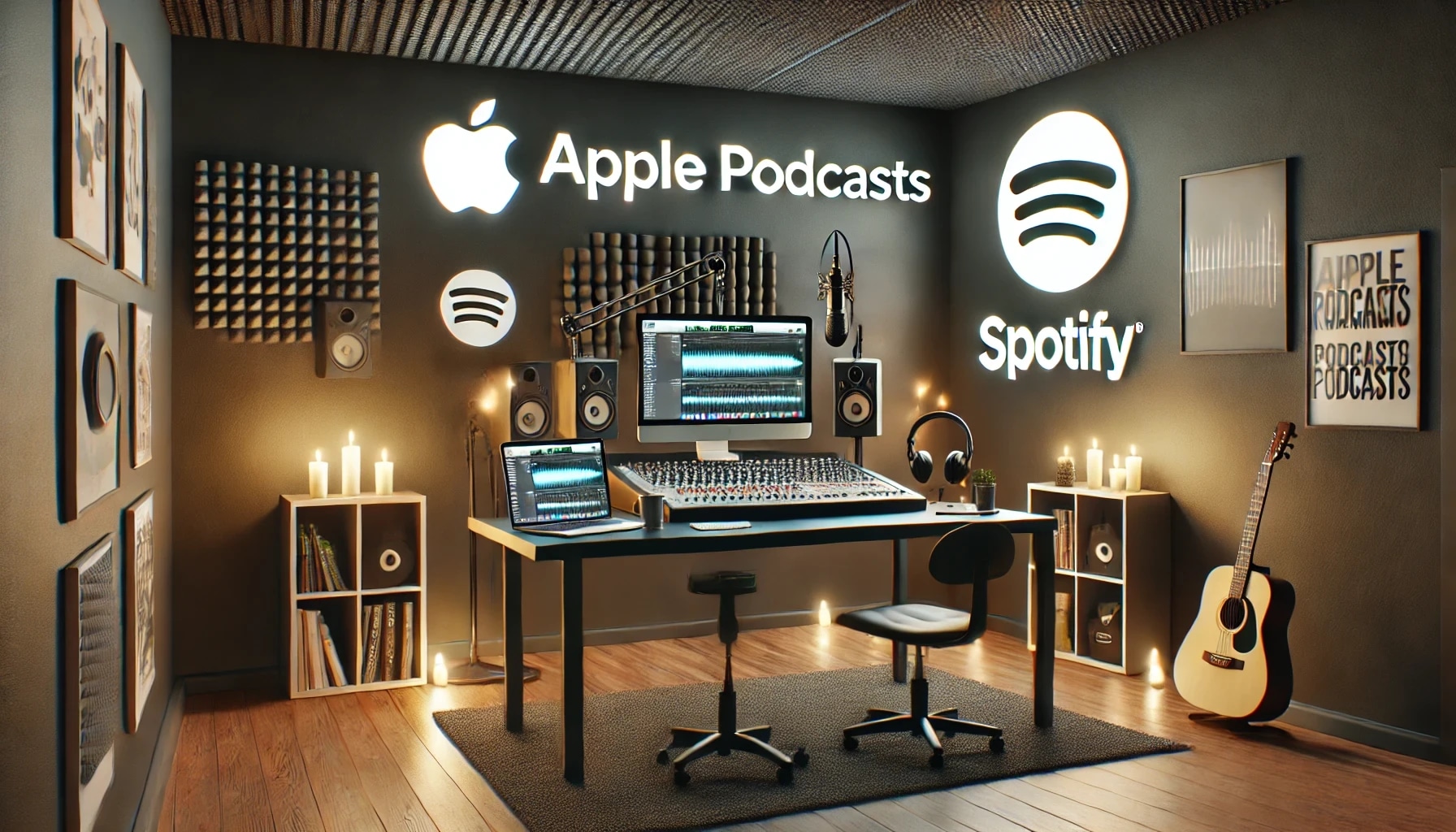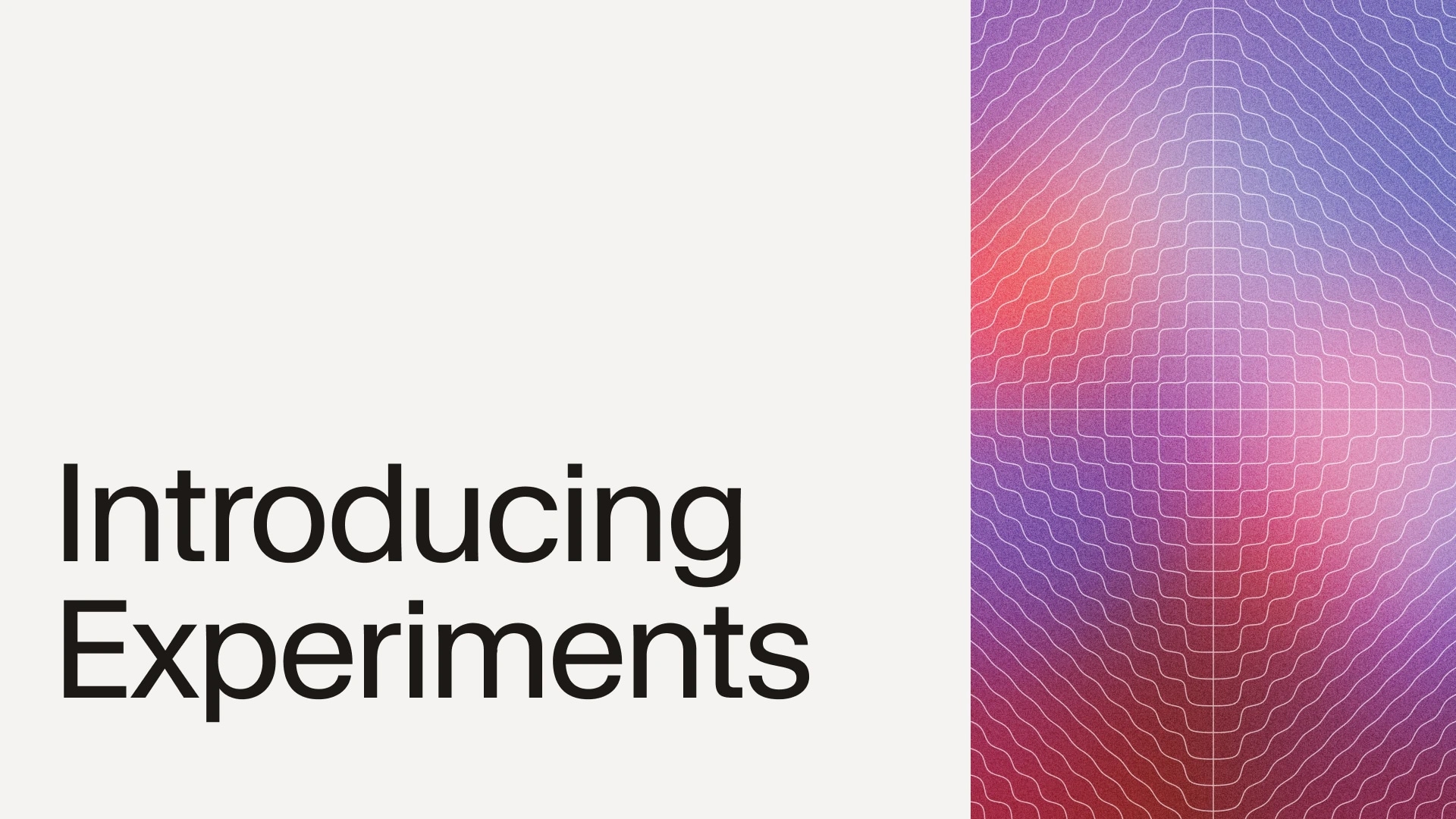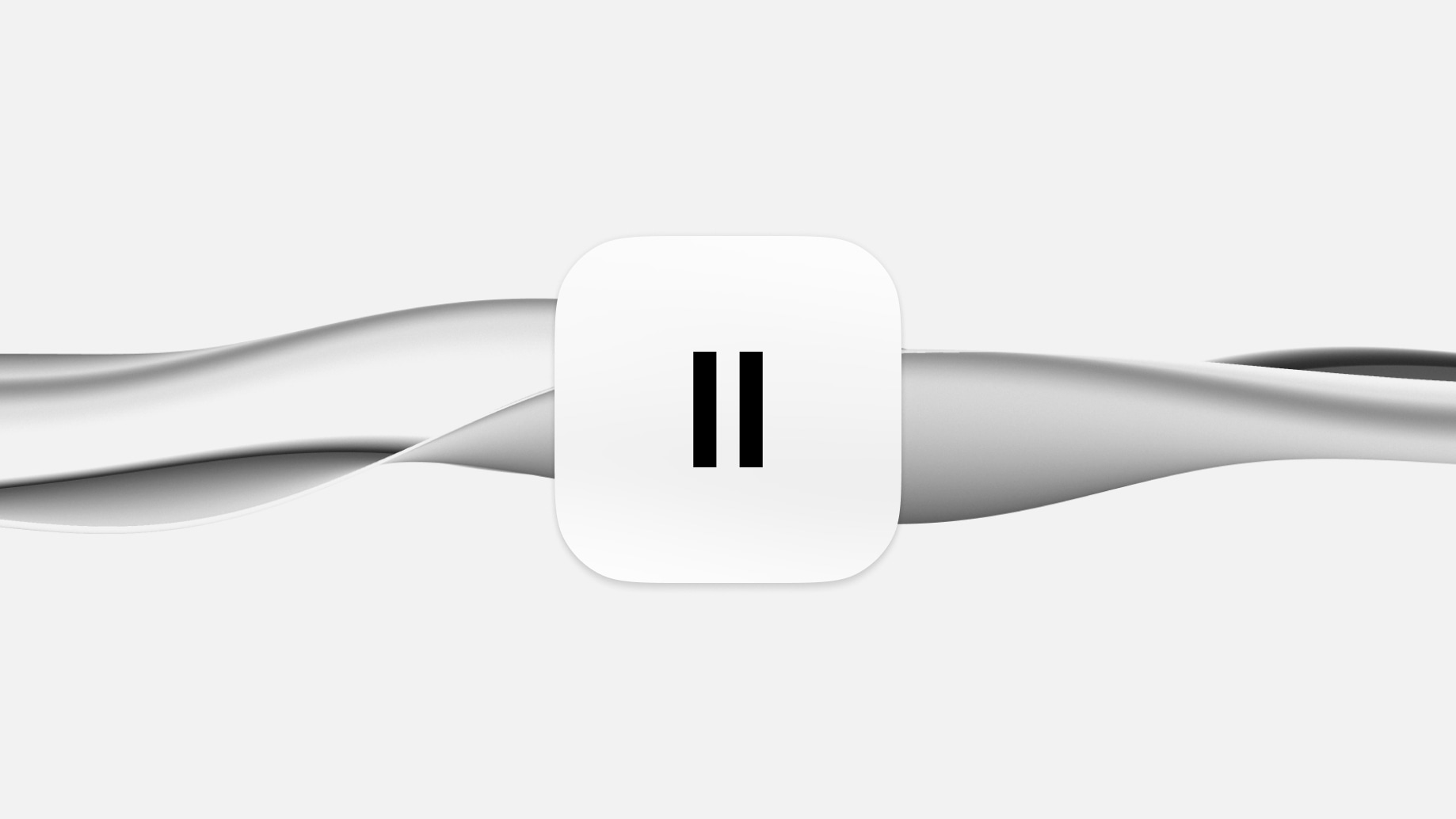
Tworzenie treści AI: kluczowe wskazówki
Dowiedz się, jak tworzyć treści na YouTube, Spotify, Apple Podcasts i Audible
AI jest wszędzie - od treści w mediach społecznościowych, które konsumujemy, po filmy, które oglądamy, aż po narzędzia, które używamy, aby nasza praca była bardziej efektywna.
Nie jest tajemnicą, że sztuczna inteligencja poczyniła znaczne postępy w ostatnich latach: zaawansowane narzędzia AI, które kiedyś były dostępne tylko dla liderów branży, są teraz dostępne dla ogółu społeczeństwa.
Biorąc pod uwagę zwiększoną dostępność zaawansowanych narzędzi AI do celów rozrywkowych i tworzenia treści, wielu artystów, pisarzy, twórców wideo, podcasterów i aktorów głosowych zaczęło optymalizować i ulepszać swoje treści za pomocą takich narzędzi.
Jednak dostępność nie oznacza nieuregulowanego użycia. Jeśli jesteś twórcą treści i chcesz włączyć AI do swoich filmów na YouTube, podcastów lub narracji, najlepszym rozwiązaniem jest upewnienie się, że twoje treści są zgodne z wytycznymi platformy - nawet jeśli teren jest nieco nieznany.
Ten artykuł analizuje wytyczne dotyczące użycia AI w produkcji treści, koncentrując się na najpopularniejszych platformach: YouTube, Spotify, Apple Podcasts i Audible.
Zanurzmy się w temat!

Wytyczne społeczności YouTube dotyczące treści generowanych przez AI
Założona w 2005 roku platforma do udostępniania wideo YouTube jest potencjalnie starsza niż niektórzy z naszych czytelników (przepraszamy, Gen Z). Prawie dwie dekady później społeczność YouTube jest silniejsza niż kiedykolwiek, a wielu nowych twórców dołącza do platformy każdego dnia.
Bez względu na narodowość, tożsamość płciową, orientację seksualną czy nawet przekonania polityczne, wiele osób uważa publikowanie i oglądanie filmów na YouTube za relaksujące i przyjemne doświadczenie.
Co więcej, postępy w narzędziach AI pozwoliły twórcom YouTube usprawnić produkcję, zwiększyć potencjał wirusowy i zwiększyć liczbę subskrybentów w ciągu kilku dni (zamiast tygodni czy miesięcy jak wcześniej). Najlepsze jest to, że te kamienie milowe można osiągnąć z mniejszym nakładem czasu, wysiłku i zasobów.
Od kanałów bez twarzy po treści edukacyjne i wirusowe memy, twórcy YouTube z pewnością nie zostali w tyle, jeśli chodzi o narzędzia AI.
Chociaż AI może być doskonałym i praktycznym dodatkiem do tworzenia treści wideo, może również prowadzić do kilku problemów prawnych i etycznych, zwłaszcza gdy jest używana do promowania zwodniczych treści, kradzieży tożsamości, tworzenia deepfake'ów lub celów zniesławiających.
Wytyczne YouTube dotyczące AI
Rzecznicy YouTube wyrazili pozytywne podejście do generatywnego AI, mówiąc, że może ono odblokować kreatywność na platformie i przekształcić doświadczenie dla twórców i widzów.
Jednak zauważyli również, że użycie AI może prowadzić do tego, że widzowie czują się wprowadzeni w błąd, zwłaszcza jeśli nie są świadomi jego użycia. Dodatkowo, wszystkie treści przesyłane na YouTube muszą być zgodne z wytycznymi społeczności, niezależnie od tego, jak zostały stworzone, co oznacza, że te same zasady dotyczą wszystkich filmów - generowanych przez AI czy nie.
Od 18 marca 2024 roku YouTube wprowadził nowe wytyczne dotyczące treści wideo generowanych przez AI, aby zapewnić, że wytyczne społeczności nie są naruszane.
Od teraz twórcy będą musieli ujawniać, czy ich treści zawierają AI, w następujących przypadkach:
- Używanie wizerunku realistycznej osoby (znane jako deepfake'i), w tym zmiana treści w celu zamiany twarzy jednej osoby na inną lub użycie technologii Voice Cloning do narracji.
- Używanie AI do zmiany materiału z rzeczywistych wydarzeń lub miejsc w celu wprowadzenia widzów w błąd (np. sprawienie, że miasto wygląda inaczej niż w rzeczywistości).
- Generowanie scen, które wyglądają realistycznie, takich jak zagrożenie katastrofą naturalną lub wojną.
Chociaż algorytmy YouTube zostały przeszkolone do automatycznego wykrywania i ujawniania treści AI, ciągłe nieujawnianie ręczne włączenia AI w wymienionych przypadkach może prowadzić do usunięcia treści w najlepszym przypadku i usunięcia z Programu Partnerskiego YouTube w najgorszym.
Jednak platforma będzie bardziej pobłażliwa wobec treści generowanych przez AI w przypadkach, gdy są one uznawane za mniej istotne, w tym:
- Wyraźnie nierealistyczne treści (na przykład przedstawienie krainy fantasy).
- Wizualne ulepszenia, takie jak korekcja kolorów, filtry oświetleniowe, efekty specjalne i filtry upiększające.
Ważne jest, aby zauważyć, że YouTube wyraził, że wytyczne dotyczące treści AI są nadal w fazie rozwoju i że ujawnienie to tylko początek.
W przyszłości YouTube opracuje również sposób, aby ludzie mogli żądać usunięcia treści generowanych przez AI, zwłaszcza jeśli naruszają one ich prywatność lub są uznawane za kradzież tożsamości.
Wskazówki dotyczące użycia AI na YouTube
Aby lepiej dostosować się do wytycznych społeczności YouTube, gorąco polecamy twórcom wideo ujawnianie użycia AI w wymienionych przypadkach. Chociaż YouTube nie ukarze cię za kilka błędów, ciągłe naruszanie nowej polityki ujawniania AI na platformie naraża cię na ryzyko usunięcia treści lub usunięcia z Programu Partnerskiego.
Co więcej, większość ich wytycznych społeczności to zdrowy rozsądek, w tym treści generowane przez AI. Takie wytyczne zabraniają twórcom publikowania treści wprowadzających w błąd, zniesławiających, niebezpiecznych, szkodliwych lub nielegalnych, więc najlepiej unikać takich przypadków całkowicie.
AI w podcastach: zasady Spotify i Apple Podcasts

Podcasty - kolejna kategoria treści, która zdobyła świat w ciągu ostatniej dekady. Od światowej sławy podcastów, takich jak "The Joe Rogan Experience" czy "Diary of a CEO", po bardziej niszowe na konkretne tematy, takie jak randki, prawdziwe zbrodnie i porady finansowe, podcasty są szeroko popularne zarówno do nauki, jak i relaksu.
Chociaż istnieje kilka platform podcastowych do wyboru, Spotify i Apple Podcasts są zdecydowanie najpopularniejsze. Tysiące twórców podcastów stara się poprawić swoje rankingi na tych platformach i zwiększyć swoją bazę słuchaczy.
Podobnie jak społeczność YouTube, społeczność podcastów również rośnie, a wielu użytkowników stara się powtórzyć popularność i sukces niektórych z bardziej znanych twórców.
Jednak, podobnie jak omawialiśmy w przypadku YouTube, platformy takie jak Spotify i Apple Podcasts mają określone wytyczne dotyczące AI, aby uniknąć szkód, dezinformacji lub ryzyka złośliwego działania.
Wytyczne Spotify dotyczące AI dla podcasterów
Zgodnie z oficjalnymi Wytycznymi użytkownika Spotify, użytkownicy muszą zwrócić uwagę na następujące punkty:
- Spotify nie zezwala na "crawling" ani "scraping" platformy w celu przeglądania, uzyskiwania dostępu lub zbierania informacji.
- Treści publikowane na platformie nie mogą być używane do trenowania modelu uczenia maszynowego lub AI ani wprowadzane do modelu AI.
Jeśli chodzi o AI i tworzenie podcastów, narzędzia AI mogą być używane do celów nieistotnych, takich jak poprawa dźwięku lub jakości nagrania. Jednak, podobnie jak w wytycznych YouTube, podszywanie się jest dużym nie-nie (szczególnie w odniesieniu do artystów muzycznych).
Zasady platformy Spotify są ogólnie dość surowe. Platforma szybko usuwa lub banuje treści audio uznawane za niebezpieczne, zwodnicze, wrażliwe lub nielegalne, co również może dotyczyć treści generowanych przez AI.
Jeśli te zasady są naruszane, Spotify usuwa treści i może nawet zbanować konta, jeśli zasady platformy są wielokrotnie ignorowane.
Apple Podcasts i treści AI
Większość Wytycznych Apple dotyczących podcastów i treści generowanych przez AI mieści się w pierwszej sekcji: Nieprawidłowe, wprowadzające w błąd lub nieautoryzowane treści.
Ich oficjalne wytyczne stwierdzają:
"Przejrzystość sztucznej inteligencji (AI). Twórcy używający AI do generowania znacznej części dźwięku podcastu muszą wyraźnie ujawnić to w dźwięku i metadanych dla każdego odcinka i/lub programu.
Wprowadzające w błąd użycie AI. Twórcy nie mogą używać AI w sposób naruszający te wytyczne, w tym do wprowadzania w błąd lub zwodniczego przedstawiania rzeczywistych wydarzeń w swoich treściach (np. fabrykowanie wiadomości lub manipulowanie klipami audio w celu przedstawienia fałszywych narracji)."
Podobnie jak Spotify, Apple nie toleruje szkodliwych treści audio, niezależnie od tego, czy są one stworzone przez człowieka, czy generowane przez AI.
AI w audiobookach: wytyczne Audible dotyczące audiobooków AI
Na koniec, audiobooki!
W naszym zabieganym i czasem przytłaczającym okresie historii wielu ludzi nie ma czasu, aby usiąść i przeczytać całą książkę, nawet jeśli czytanie jest ich pasją. Tutaj z pomocą przychodzą platformy do udostępniania audiobooków, takie jak Audible Amazona.
Audiobooki zrewolucjonizowały sposób, w jaki ludzie czytają (a może raczej "słuchają") książki i dostarczyły praktycznego rozwiązania prawdziwego problemu. Dzięki szerokiej dostępności audiobooków i narracji do wyboru, pracoholicy, zmęczeni rodzice, przytłoczeni studenci i osoby z niepełnosprawnościami mogą nadal cieszyć się swoimi ulubionymi autorami.
Niezależnie od tego, czy słuchacze chcą nadrobić zaległości w powieści podczas codziennych dojazdów, czy zasnąć przy ulubionym narratorze, audiobooki to umożliwiają.
To prowadzi nas z powrotem do naszego tematu - AI.
Narzędzia do generowania głosu AI, takie jak ElevenLabs, mogą być niezwykle przydatne do narracji audiobooków. Jednak platformy do publikowania audiobooków, takie jak Audible, pozostają w ciemności, jeśli chodzi o wytyczne.
Oto dlaczego.
Wytyczne Audible dotyczące AI dla wydawców
Zanim nasza przestrzeń cyfrowa doświadczyła znaczących postępów w AI, w tym narzędzi do generowania głosu i zamiany tekstu na mowę, wymagania dotyczące zgłaszania Audible były stosunkowo proste.
Zgodnie z oficjalnymi Wymaganiami dotyczącymi zgłaszania dźwięku ACX, wszystkie zgłaszane audiobooki muszą być narratorem przez człowieka, chyba że inaczej autoryzowane. Podobnie, strona internetowa ACX stwierdza, że nieautoryzowane użycie zamiany tekstu na mowę i automatycznych narracji jest zabronione.
Chociaż wytyczne są jednoznaczne, nie uwzględniają szybkich postępów narzędzi do zamiany tekstu na mowę i generowania głosu. W ciągu zaledwie kilku lat przeszliśmy od narracji brzmiących jak roboty do nałożonych głosów AI ledwo odróżnialnych od prawdziwych.
Ze względu na te postępy możemy spodziewać się dalszych zmian lub wyjaśnień ze strony platform do udostępniania audiobooków w przyszłości.

Automatyzuj nagrania do wideo, reklam, podcastów i innych – swoim głosem
Końcowe przemyślenia
Na tym etapie ewolucji tej nowej technologii jest oczywiste, że AI może być używana do ulepszania kreatywnych treści, optymalizacji efektywności pracy i ułatwiania życia ludziom. Jednak najlepiej podejść do narzędzi generowania treści AI z szacunkiem i ostrożnością, na jakie zasługują, i używać ich do celów twórczych, a nie destrukcyjnych.
Jeśli planujesz używać narzędzi AI do ulepszania swoich treści, czy to tworzenia wideo, podcastów, czy narracji audiobooków, upewnij się, że znasz wytyczne każdej platformy, aby uniknąć oznaczenia, usunięcia treści lub całkowitego usunięcia konta.
Ostrożnie obchodź się z czymkolwiek, co może być uznane za treści wrażliwe, w tym promowanie samookaleczeń, naruszenia prywatności, przedstawienia nagości lub seksu, dyskryminacji i wszystkiego, co dotyczy nieletnich. Podobnie, unikaj tworzenia treści, które mogą być uznane za zwodnicze, zniesławiające, oszukańcze, wprowadzające w błąd lub po prostu złośliwe.
Mając to na uwadze, mamy nadzieję, że ten artykuł dostarcza wglądu w wytyczne dotyczące tworzenia treści AI na niektórych z najpopularniejszych platform.
FAQ
Przeglądaj artykuły zespołu ElevenLabs

Text to Speech API - Up To 40% Faster Globally

Introducing Experiments in ElevenAgents
The most data-driven way to improve real-world agent performance.

